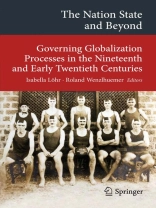The history of globalization is anything but a no-frills affair that moves smoothly along a clear-cut, unidirectional path of development, eventually leading to seamless global integration. Accordingly, scholarship in the social sciences has increasingly argued against equating the history of globalization processes and transcultural entanglements with the master narrative of the gradual homogenization of the world. Examining the shifting patterns of global connections has, therefore, become the main challenge for all those who seek to understand the past, the present and the future of modern societies. And this challenge includes finding a place for the nation state. The studies presented here argue that looking at the nation state from the perspective of global entanglements opens the door for its interpretation as a dynamic and multi-layered structure that takes part in globalization processes and plays various and at times even contradictory roles at the same time.
Mục lục
Introduction: The Nation State and Beyond. Governing Globalization Processes in the Nineteenth and Early Twentieth Centuries.- Part I: The “Forces Profondes” of Internationalism in the Late 19th Century: Politics, Economy and Culture.- Part II: Institutionalised Cooperation on International Communication: The International Administrative Unions as a Means of Governing Globalisation Processes.- Part III: National and Transnational Spaces: Academic Networks and Scholarly Transfer between Britain and Germany in the Nineteenth Century.- Part IV: The Nation-State/Empire as a Unit of Analysis of the History of International Relations: A Case Study in Northeast Asia, 1868–1933.












